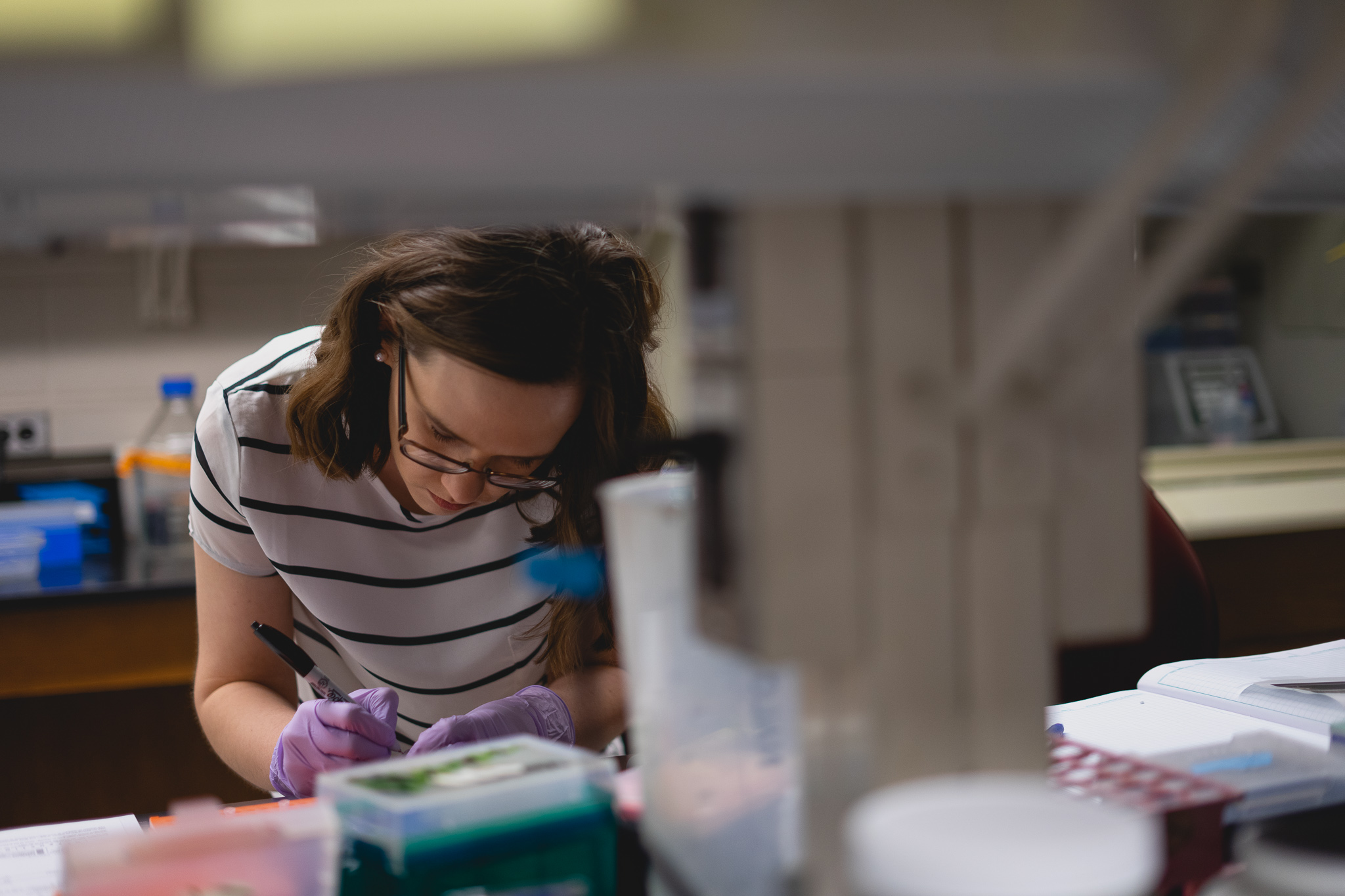Vassar College
(2021-present)
Rebecca Pollet is an Assistant Professor in the Chemistry department at Vassar College. She teaches introductory chemistry (Chem 121), biochemistry (BIOL/CHEM 272), and biochemistry senior seminar (BIOC 356). Her research lab focuses on characterizing proteins important in carbohydrate utilization by the human gut microbes, especially Bacteroides thetaiotaomicron.
Outside of science Rebecca enjoys spending time with her husband, Lucas, and their cats. She looks forward to spending time with her family and learning about physics and performing arts from her younger brother and sister. Rebecca is committed to serving as a positive role model for young women, both by doing science outreach and as an advisor through Delta Beta Sigma high school sorority and Kappa Delta Sorority. Her current personal project is learning the Cherokee language. You can reach Rebecca at rpollet at vassar dot edu. Rebecca is an enrolled citizen of Cherokee Nation.
Davidson College
(2020-2021)
In July 2020 Rebecca joined the Department of Biology as a Visiting Assistant Professor. In Fall 2020 she taught introductory biology, Bio113: Integrated Concepts in Biology I. In Spring 2020 she taught Bio303: Biochemistry and Bio142: Biochemistry of Traditional Medicine, a course she developed on medicines and wellness across cultures.
University of Michigan
(2016-2020)
In December 2016 Rebecca joined Nicole Koropatkin’s lab in the Department of Microbiology and Immunology as a postdoctoral research fellow. There she focused on characterizing proteins from the human gut microbe Bacteroides thetaiotaomicron. Her primary focus was on the role of TonB in polysaccharide utilization and the TonB-dependent transporter SusC. Rebecca was honored to be acknowledged as a finalist for the LIfe Science Research Foundation Postdoctoral Fellowship and received the Michigan Outstanding Postdoctoral Fellow Award.
While at Michigan, Rebecca also served as a faculty member in the Citizen Science program at Bard College and was highly involved in diversity, equity, and inclusion efforts including launching Diversify Microbiology.
University of North Carolina at Chapel Hill
(2011-2016)
Rebecca entered graduate school at UNC through the Biological and Biomedical Sciences Program. After a year of classes and lab rotations, she joined the lab of Matthew Redinbo and the Department of Biochemistry and Biophysics. There she worked on two projects during the course of completing her PhD. The first project, published in the Journal of Bacteriology, focused on antibiotic resistance transfer in Staphylococcus aureus. The second project focused on cataloging and characterizing beta-glucuronidases expressed by the human gut microbiota. Rebecca was honored to be supported by the UNC Initiative for Maximizing Student Diversity Fellowship for her first two years of graduate school and to receive a National Science Foundation Graduate Research Fellowship in 2013. In addition to the training she received at UNC, Rebecca attended the 2012 Cold Spring Harbor Labs X-ray Methods in Structural Biology Course. Rebecca received her doctorate in July 2016 and remained in the Redinbo lab for 3.5 months as a postdoc.
As a graduate student, Rebecca continued to seek out teaching opportunities. She served as a teaching assistant for a biochemistry lab for non-majors in the fall of 2012 and enrolled in a course of college science teaching that allowed her to work with two other students to design and teach one lecture for an upper division chemistry course.
University of Tulsa
(2007-2011)
At the University of Tulsa (TU) Rebecca quickly became involved in biochemistry research but also served as a student leader across campus. She served in several leadership positions including president for Colleges Against Cancer, American Cancer Society’s Relay For Life of TU, and Kappa Delta Sorority. She was inducted into the honor societies Omicron Delta Kappa, Mortar Board, and Order of Omega. Within the Department of Chemistry and Biochemistry, she was member of the American Chemical Society Student Affiliates and was inducted into the honor society Phi Lambda Upsilon.
In the lab, Rebecca worked for Robert Sheaff for 3.5 years including 2 summer research programs. She worked on two projects, one of which lead to a publication. She attended and presented a poster at the American Chemical Society National Meeting in 2009, 2010, and 2011. At TU, Rebecca also discovered a passion for teaching. She served as the teaching assistant for the molecular modeling class for two semesters as well as mentoring two pre-collegiate researchers during summer sessions.
Rebecca was born in the panhandle of Texas and moved to Muldrow, Oklahoma before entering 4th grade. In Oklahoma Rebecca got in touch with her Cherokee identity, was dedicated to dance (ballet, tap, and jazz) and, thanks to great teachers, became interested in science.


